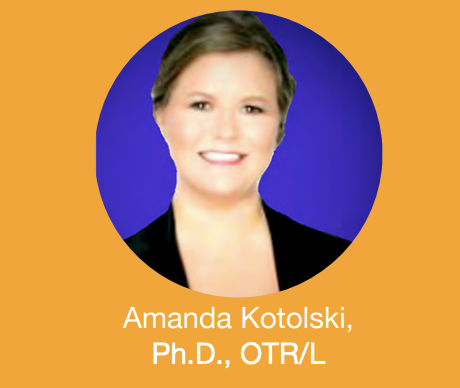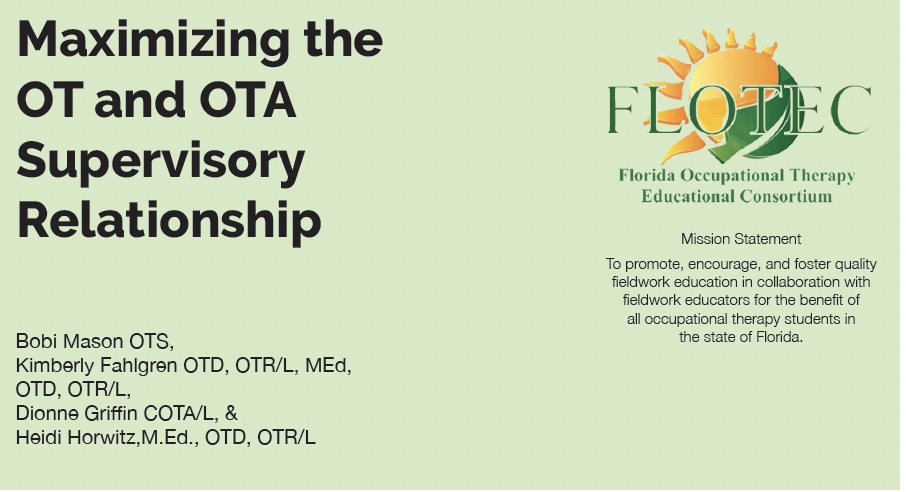
The Accreditation Council for Occupational Therapy Education (ACOTE®) standards and the Standards of Practice for Occupational Therapy identify the collaborative roles of OT/ OTA intraprofessional responsibilities (Accreditation Council for Occupational Therapy Education [ACOTE], 2018; American Occupational Therapy Association [AOTA], 2020, 2015). According to the American Occupational Therapy Association (AOTA, 2022), there are 16 occupational therapy and 20 occupational therapy assistant programs in Florida. The 2022 U.S. Bureau of Labor and Statistics Occupational Outlook Handbook reports 6,770 occupational therapists and 2,550 occupational therapy assistants licensed in Florida (U.S. Bureau of Labor Statistics, 2022). The employment rates for occupational therapy practitioners are growing exponentially, with an expected increase of 24% for OTAs and OT aides and 14% for OTs by 2031 (U.S. Bureau of Labor Statistics, 2022). With the growing demand for occupational therapy practitioners, the profession must ensure that OT and OTA students and practitioners have the knowledge and skills to promote quality supervisory and collaborative relationships to ensure best practices for our clients. This process should start in the educational environment.
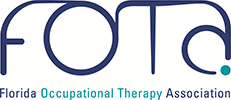
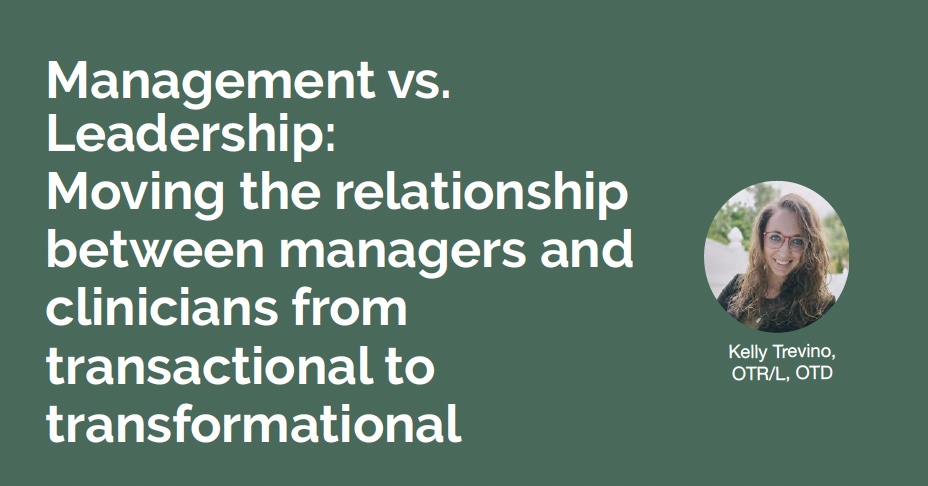
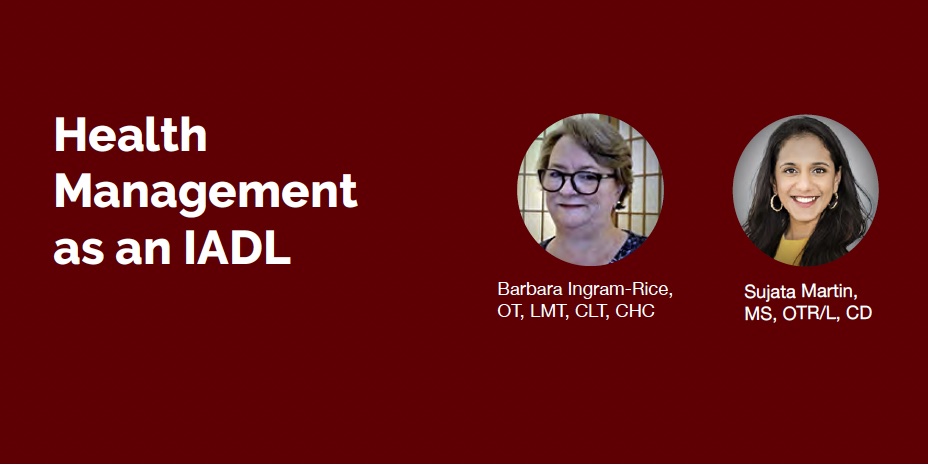
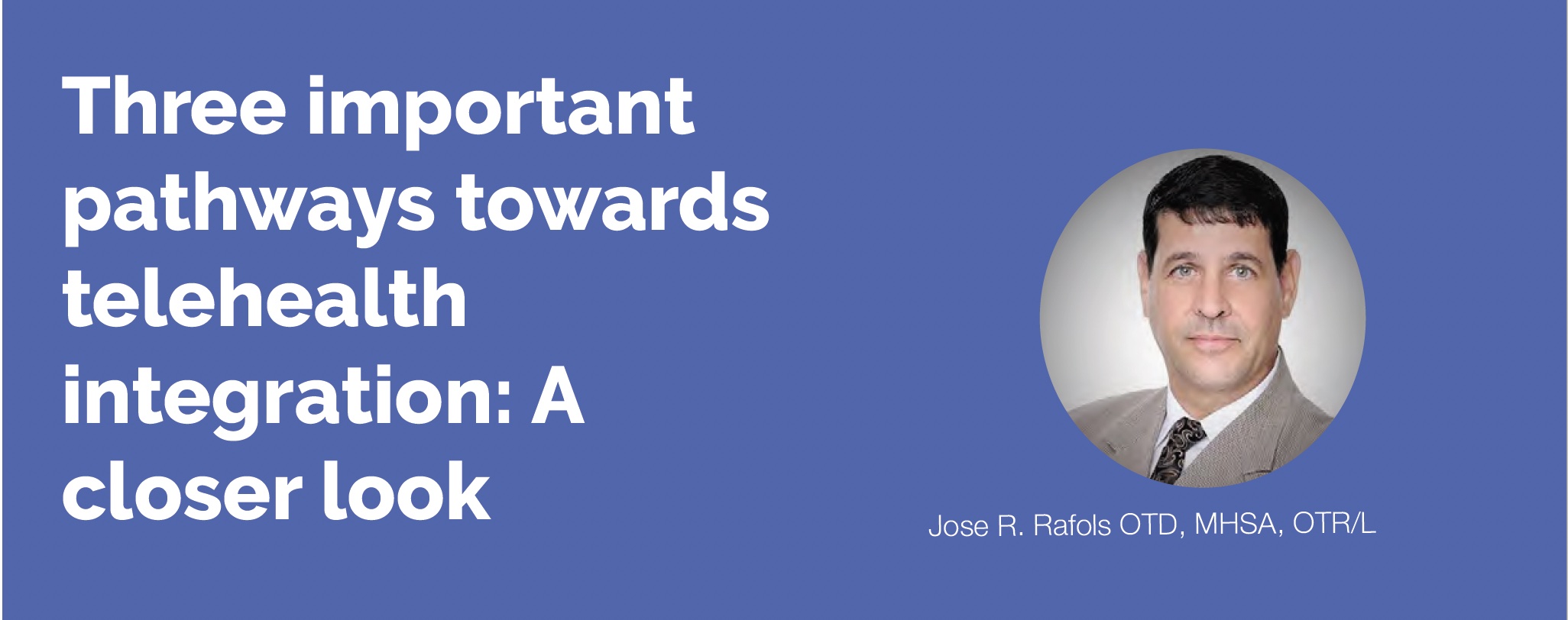
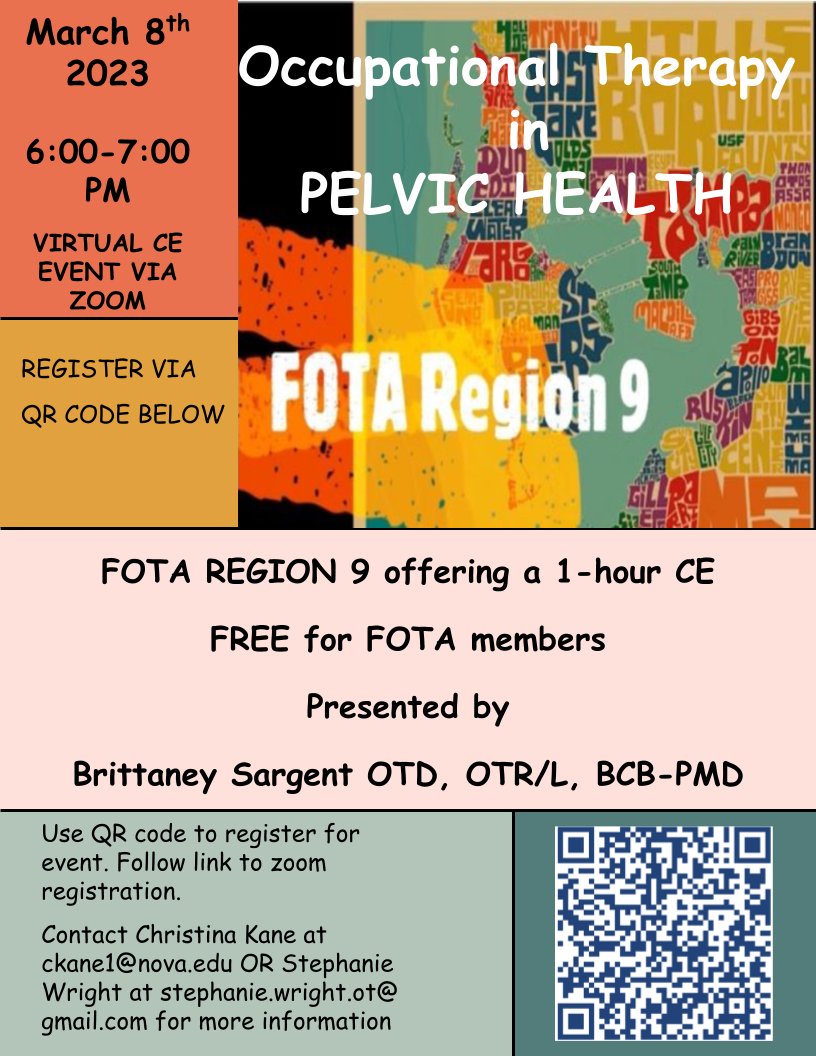
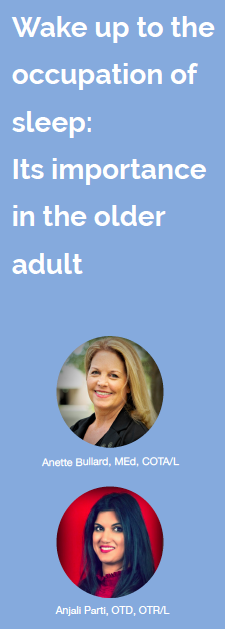 Everyone has experienced having to power through the day after a night of not sleeping well with every aspect of the day feeling more challenging due to your lack of sleep. The National Institute of Health (2017) identifies sleep as one of the most important occupations for maintaining all aspects of health. In fact, the Centers for Disease Control and Prevention (2018) has recognized sleep deprivation as a public health problem with broad, negative effects on safe occupational performance. For the older adults the challenges brought on by age compounded with a lack of sleep can further decrease successful occupational performance. Many age-related changes tend to disturb patterns of sleep and the myth that older adults need less sleep is actually incorrect (Suni, 2022b). The older adult is confronted with additional sleep obstacles such as, chronic conditions, medications, diminished physical activity, and decreased cognitive exercise, all of which have all been associated with decreases in sleep satisfaction. The resulting downward spiral of poor sleep results in less successful occupational engagement. The Occupational Therapy Practice Framework includes ‘rest and sleep’ as an area of occupation and defining occupational therapy practitioners as qualified professionals to assist clients with the occupation of rest and sleep (American Occupational Therapy Association, 2020). This brief article seeks to assist practitioners with identifying resources and awareness for more consistently addressing the occupation of sleep in the older adults.
Everyone has experienced having to power through the day after a night of not sleeping well with every aspect of the day feeling more challenging due to your lack of sleep. The National Institute of Health (2017) identifies sleep as one of the most important occupations for maintaining all aspects of health. In fact, the Centers for Disease Control and Prevention (2018) has recognized sleep deprivation as a public health problem with broad, negative effects on safe occupational performance. For the older adults the challenges brought on by age compounded with a lack of sleep can further decrease successful occupational performance. Many age-related changes tend to disturb patterns of sleep and the myth that older adults need less sleep is actually incorrect (Suni, 2022b). The older adult is confronted with additional sleep obstacles such as, chronic conditions, medications, diminished physical activity, and decreased cognitive exercise, all of which have all been associated with decreases in sleep satisfaction. The resulting downward spiral of poor sleep results in less successful occupational engagement. The Occupational Therapy Practice Framework includes ‘rest and sleep’ as an area of occupation and defining occupational therapy practitioners as qualified professionals to assist clients with the occupation of rest and sleep (American Occupational Therapy Association, 2020). This brief article seeks to assist practitioners with identifying resources and awareness for more consistently addressing the occupation of sleep in the older adults.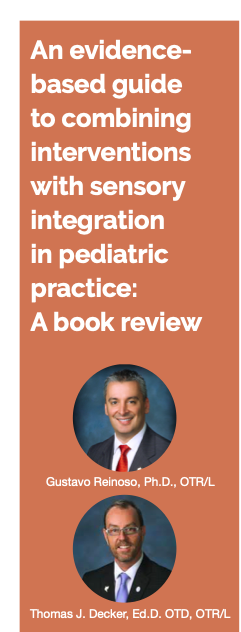
 Lymphedema Basics: Increasing Client Occupations
Lymphedema Basics: Increasing Client Occupations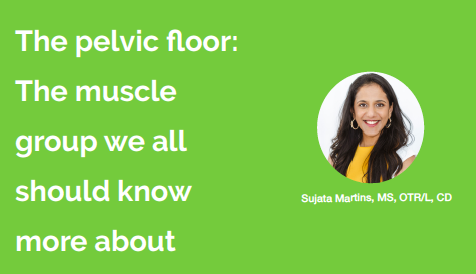 The pelvic floor: The muscle group we all should know more about
The pelvic floor: The muscle group we all should know more about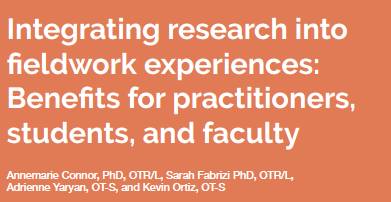 Integrating research into fieldwork experiences: Benefits for practitioners, students, and faculty
Integrating research into fieldwork experiences: Benefits for practitioners, students, and faculty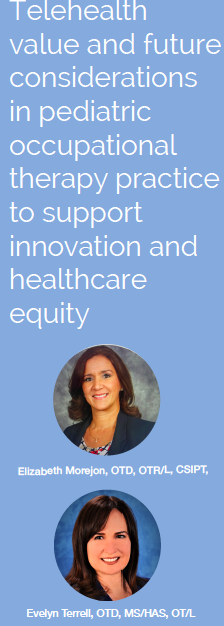 Telehealth value and future considerations in pediatric occupational therapy practice to support innovation and healthcare equity
Telehealth value and future considerations in pediatric occupational therapy practice to support innovation and healthcare equity
